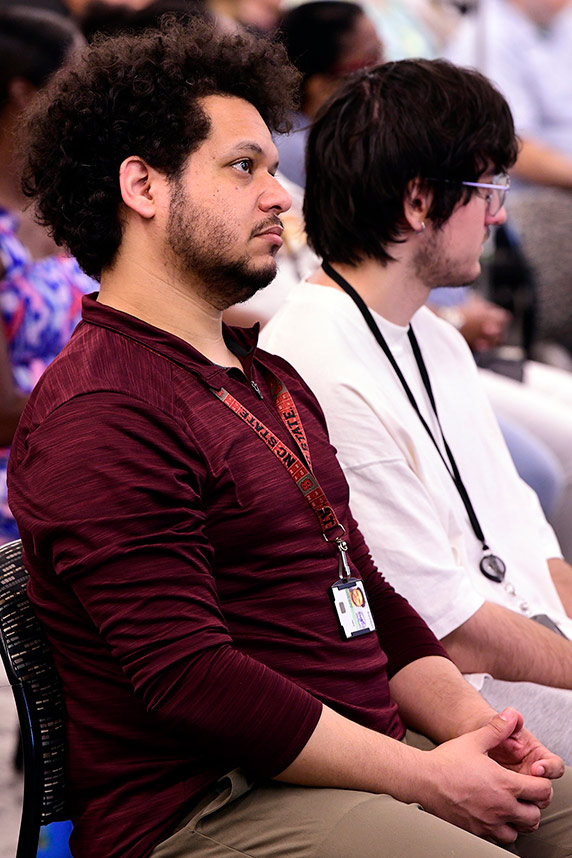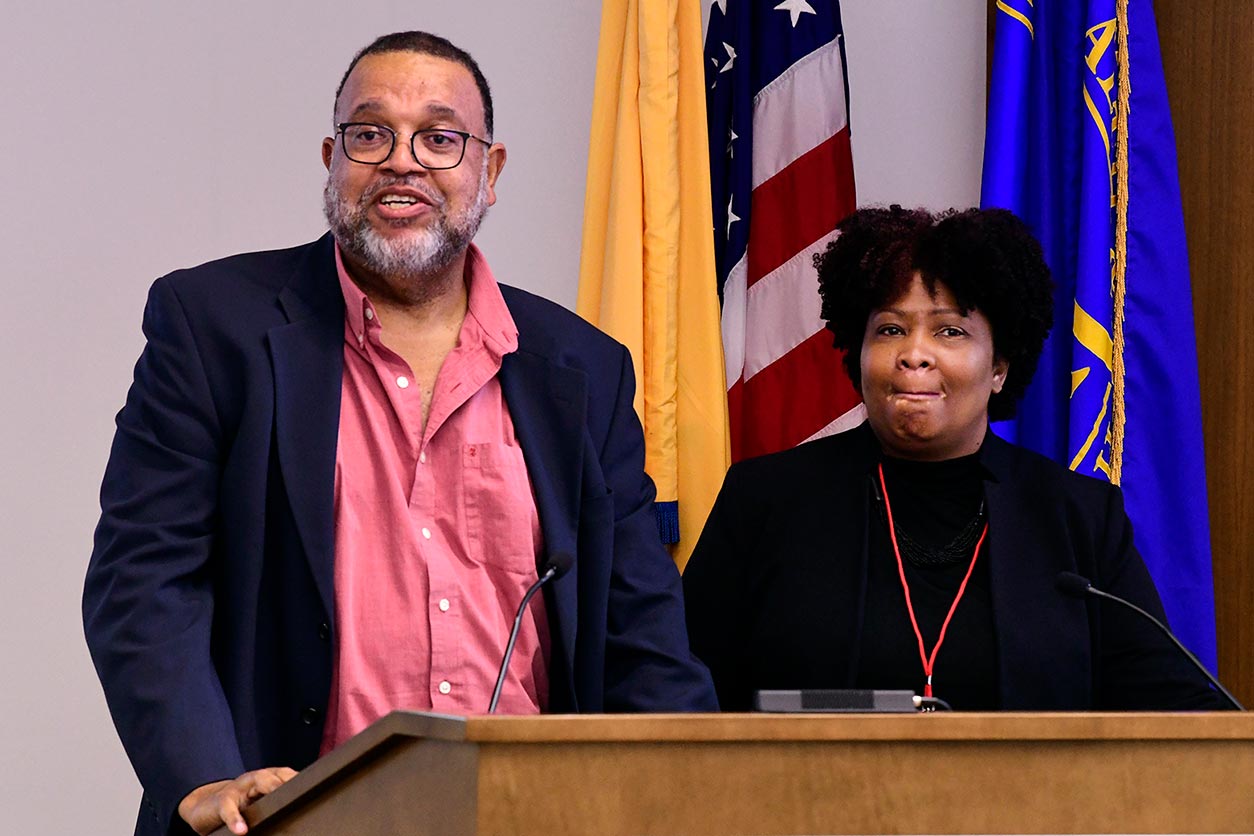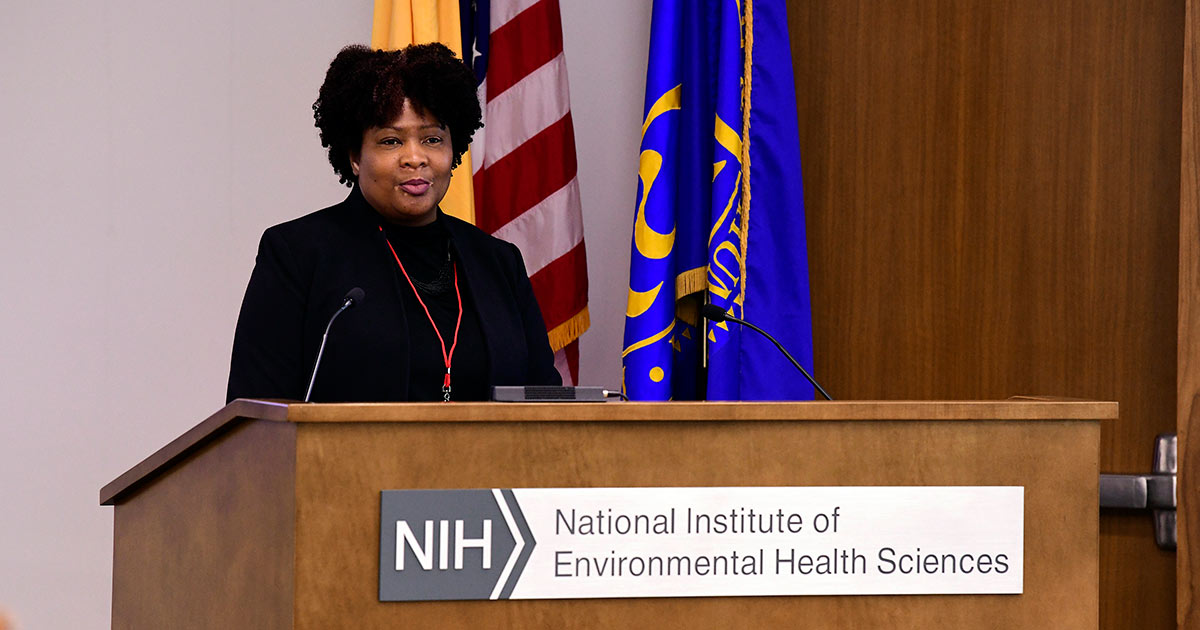NIEHS hosted a June 18 celebration featuring a Juneteenth lecture, thought discussions, health webinars, and engagements with local community organizations to recognize the past and improve the future. Melissa Davis, Ph.D., founding director of the Institute of Translational Genomic Medicine at the Morehouse School of Medicine, delivered the Juneteenth lecture. The federal holiday observed on June 19 commemorates the ending of slavery in the United States.
“Juneteenth reminds us that we need to remain diligent in our collective commitment to diversity, equity, and inclusion, and we need to do this in every aspect of our lives,” said NIEHS Director Rick Woychik, Ph.D., during opening remarks. “NIEHS is committed to creating a world where freedom, justice, and equality for all are the lived realities.”
Unraveling health disparities
During her talk, “Race, Place, and Space in Cancer Disparities,” Davis discussed how her research integrates social determinants of health, environmental exposures, genetics, and tumor biology to better understand disproportionate cancer outcomes in people of African descent.
Historical racial injustices have created barriers and delays in care that still persist today, said Davis. However, [genetic] ancestry also plays a role in cancer incidence. For example, Davis’ research has uncovered a correlation between western sub-Saharan African ancestry and the occurrence of triple-negative breast cancer, a particularly aggressive form of cancer.
“It’s an amazing time to study cancer because we now have the ability to take all of these data elements for different factors from individual patients,” said Davis. “The vision is that each patient will have a tailored therapy that is geared toward all of the elements that make up the “whole” person, including their family history, biomarkers, where they live, and what they’re exposed to.”

Davis recently received a $25 million grant from Cancer Research UK and the National Cancer Institute to lead a global team investigating cancer disparities through societal, ancestral, molecular, and biological lenses.
Their task, Davis explained, is to deliver a data repository with detailed information on 40,000 patients with breast, prostate, or pancreatic cancer. These types of cancer are typically more aggressive and are diagnosed at an earlier age in Black people, said Davis. Participants will undergo whole genome sequencing and in-depth interviews to gather information about lived experience, place of residence, potential exposures, and societal trauma.
“The lecture by Dr. Davis was outstanding scientifically, and highly relevant to the mission of NIEHS and the Juneteenth observance,” said Trevor Archer, Ph.D., NIEHS Deputy Director. “She successfully weaved the historical context of slavery and the science of environmental health disparities with genomics, epigenomics and exposomics, illustrating the impact of our shared history on the biological and medical issues facing African Americans and indeed all Americans today.”

Pushing equitable change forward
In addition to in-person activities, NIEHS partnered with supporters of the Eight Changes for Racial Equity (8CRE, pronounced acre) in offering “19 Days of Wellness.” The virtual program held June 1-19 included health webinars and suggested activities for financial, physical, intellectual, spiritual, and emotional and psychological wellness.
As an official advisory group to the National Institutes of Health (NIH), supporters of 8CRE partner with NIH on a range of efforts to address equity, diversity, and inclusion. The eight changes were proposed in 2020 by members of the NIH community to promote compassion, respect, and understanding for all in the workplace. For more information, and to support the group, visit their website: support8cre.com.
(Lindsay Key is a contract writer for the NIEHS Office of Communications and Public Liaison.)
Source link
factor.niehs.nih.gov

